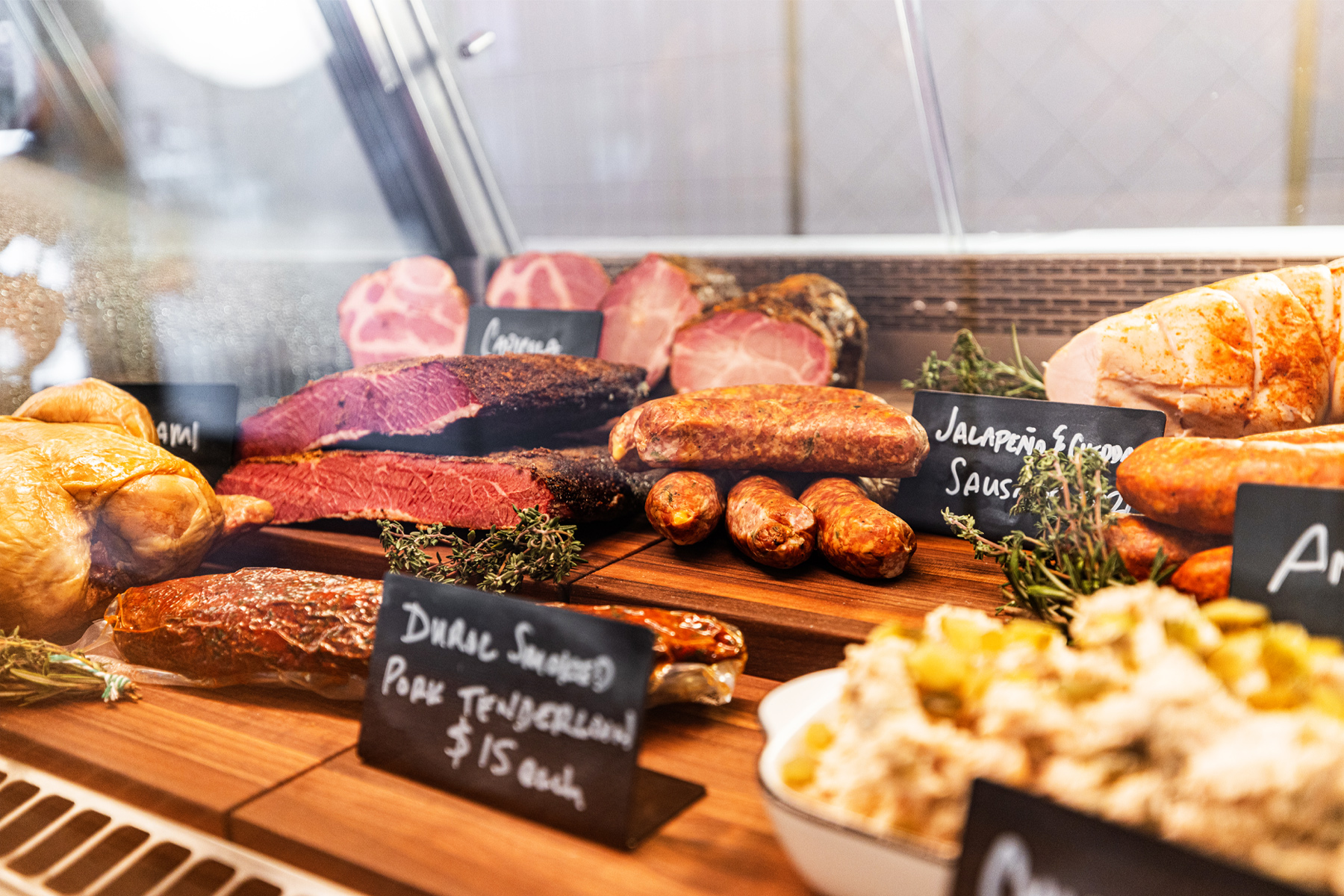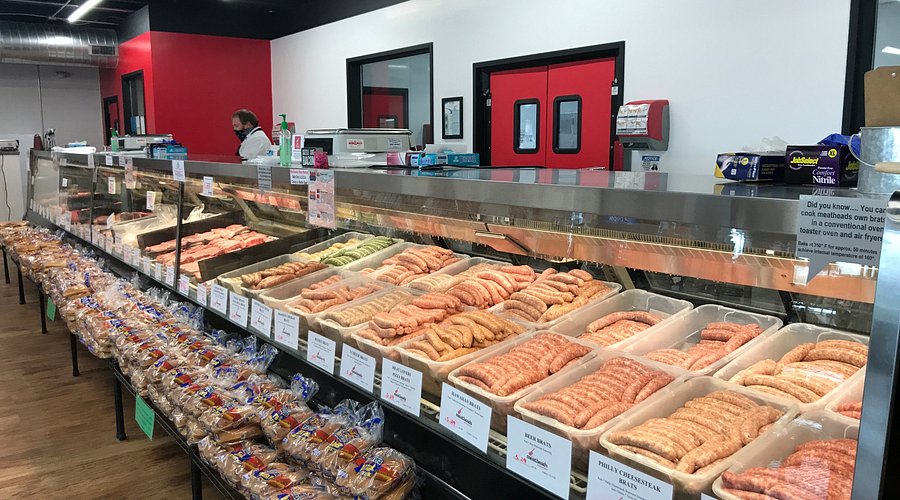Why Buying at a Local Meat Market Guarantees Fresh, High-Quality Cuts
Purchasing at a local meat market uses distinctive advantages that typically go unnoticed by customers accustomed to larger retail chains. The effects of choosing regional extend beyond prompt benefits, triggering a closer evaluation of what this option absolutely implies for both customers and the local economy.
Benefits of Regional Sourcing
In the realm of food procurement, the benefits of regional sourcing stand apart prominently. By buying meat from neighborhood markets, customers get straight access to products that are usually fresher and a lot more delicious than those located in bigger, commercial grocery stores. Regional sourcing minimizes the time and range food travels from ranch to table, which not only boosts preference yet also maintains dietary worth.

Furthermore, neighborhood sourcing commonly gives openness regarding the origins of the meat. Consumers can ask concerning the farming techniques used, pet welfare criteria, and whether the meat is grass-fed or natural. This information encourages consumers to make enlightened decisions lined up with their worths.
Quality Assurance Standards
Regional meat markets typically adhere to extensive quality assurance criteria that ensure the products used meet high safety and security and freshness criteria. These requirements typically encompass different stages of the meat manufacturing process, from sourcing to managing and storage.
First, local markets commonly develop rigorous supplier standards, guaranteeing that just reputable farms and producers are made use of - bagley meat market edwardsville il. This minimizes the probability of contamination and promotes greater pet welfare standards. Furthermore, numerous local meat markets carry out routine assessments to validate that the meat is refined under sanitary problems, even more lessening wellness dangers
Temperature level control is one more crucial facet of quality guarantee. Neighborhood meat markets often keep track of refrigeration systems to preserve ideal storage temperatures, guaranteeing that meat remains safe and fresh for consumption. Additionally, the execution of traceability systems allows markets to track the beginning of their items, giving openness and accountability.
Last but not least, team at regional meat markets are usually trained to acknowledge indicators of perishing and understand correct handling techniques. This dedication to quality control not just raises the overall criterion of the meat yet additionally cultivates customer trust, making neighborhood meat markets a reputable resource for premium cuts.
Supporting Neighborhood Farmers
Sustaining regional farmers is vital for promoting a sustainable food system and enhancing area strength. They straight add to the source of incomes of farmers in their region when consumers choose to shop at local meat markets. This not only sustains the neighborhood economic climate yet likewise reinforces the agricultural field, making sure that it continues to be vivid and sensible.


Furthermore, sustaining neighborhood farmers fosters a sense of community and link in between customers and producers. It urges openness in food sourcing and instills trust fund, as clients can establish partnerships with the people who elevate their food. This straight connection inevitably Get the facts results in a more involved and educated public, which is important for supporting for sustainable agricultural techniques in the future.
Sustainable Practices
Sustainable practices in meat markets play a critical function in promoting environmental stewardship and making certain animal well-being. Local meat markets often focus on sourcing their products from ranches that carry out lasting and ethical farming methods. These practices include rotational grazing, which aids maintain soil wellness and reduces carbon discharges, along with minimizing making use of prescription antibiotics and hormonal agents in livestock.
Furthermore, regional meat markets commonly stress openness in their supply chains. Clients are offered with info relating to the origin of their meat, permitting them to make informed selections that line up with their worths. By sustaining neighborhood farmers who exercise sustainable techniques, customers contribute to the conservation of biodiversity and the decrease of transport emissions connected with long-distance meat circulation.
Furthermore, lots of neighborhood meat markets participate in waste decrease strategies, such as utilizing every component of the pet and promoting off-cuts that could otherwise go unsold. By fostering an extra sustainable approach to meat intake, these markets not just give high-grade items yet also add positively to the setting and animal welfare. Basically, buying at a regional meat market aligns consumers with a wider activity towards liable and moral food sourcing.
Customized Consumer Service
Shopping at a meat market frequently incorporates even more than simply the products supplied; it is additionally about the visit experience and the connections constructed between consumers and personnel. Individualized client service is a characteristic of neighborhood meat markets, establishing them aside from bigger grocery chains. Knowledgeable personnel make the effort to comprehend specific consumer preferences, making certain that each visit is tailored to details demands.
Clients take advantage of experienced guidance on cuts, food preparation approaches, and preparation tips, promoting a sense of trust and commitment. This tailored interaction permits customers to ask concerns and look for recommendations, causing informed acquiring choices. Team member typically bear in mind regular consumers and their preferences, developing an inviting atmosphere that grows area connections.
Additionally, customized solution encompasses unique requests, such as personalized cuts or specific preparation approaches, which bigger retailers may not suit. This degree of focus enhances the commitment of local meat markets to top quality and client fulfillment.
Essentially, individualized client service not just improves the shopping experience yet also makes sure that clients entrust the best items matched to their cooking needs, making every visit a rewarding one.
Conclusion
Supporting regional farmers fosters neighborhood partnerships and enhances the neighborhood economy, while sustainable practices contribute to environmental stewardship. Additionally, tailored client service improves the purchasing experience, making neighborhood meat markets a recommended selection for customers seeking both top quality and honest factors to consider in their food sourcing.
The implications of picking local expand past prompt benefits, prompting a closer evaluation Look At This of what this choice truly means for both customers and the local economic situation.
Supporting neighborhood meat markets also contributes to the regional economy. Neighborhood meat markets regularly monitor refrigeration systems to keep ideal storage space temperatures, ensuring that meat stays fresh and safe for consumption.Local farmers are often a lot more attuned to the certain requirements of their neighborhoods, increasing and expanding crops livestock that straighten with regional tastes and choices. Sustaining neighborhood farmers fosters community relationships and strengthens the regional economy, while lasting practices add to ecological stewardship.